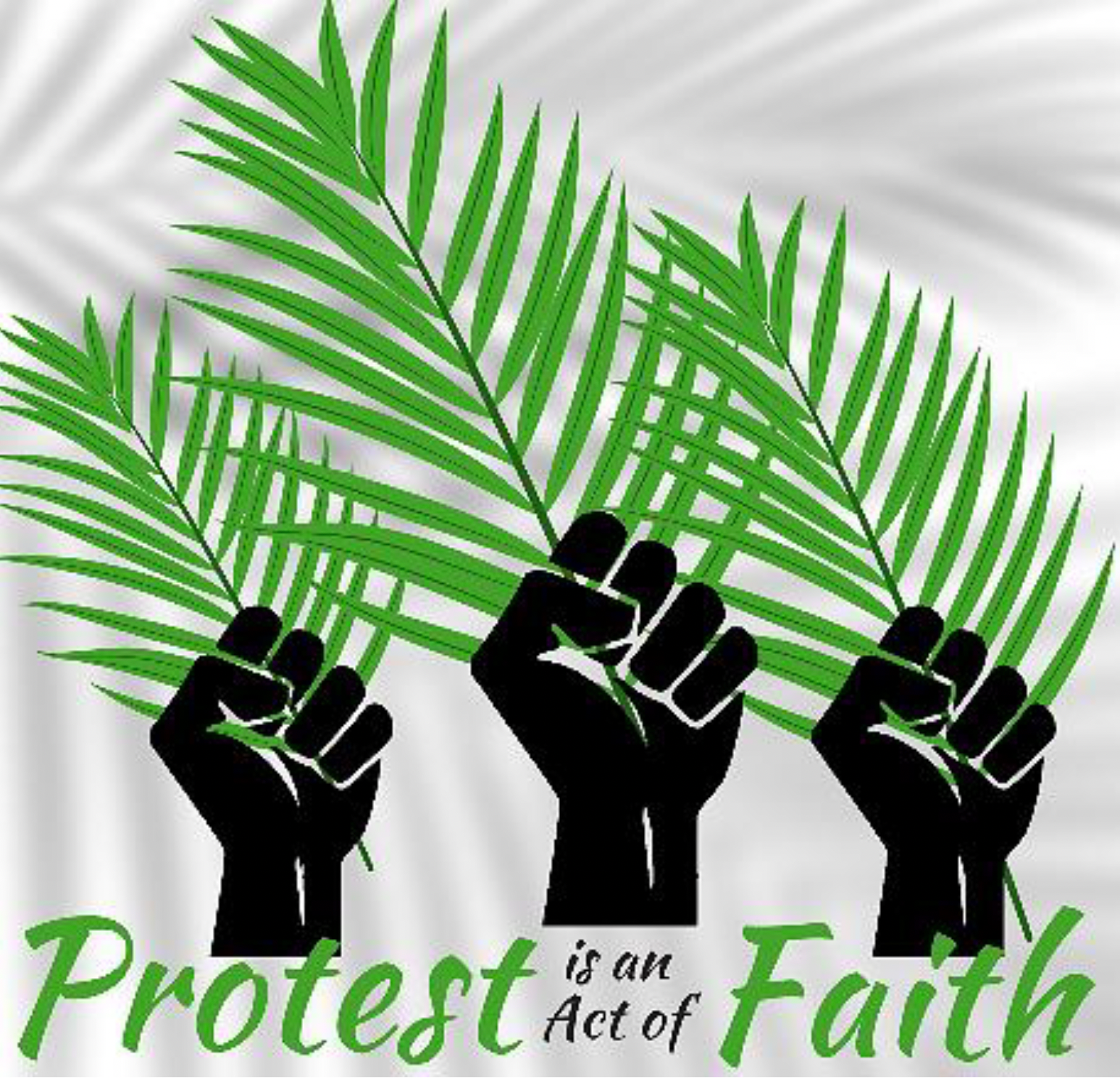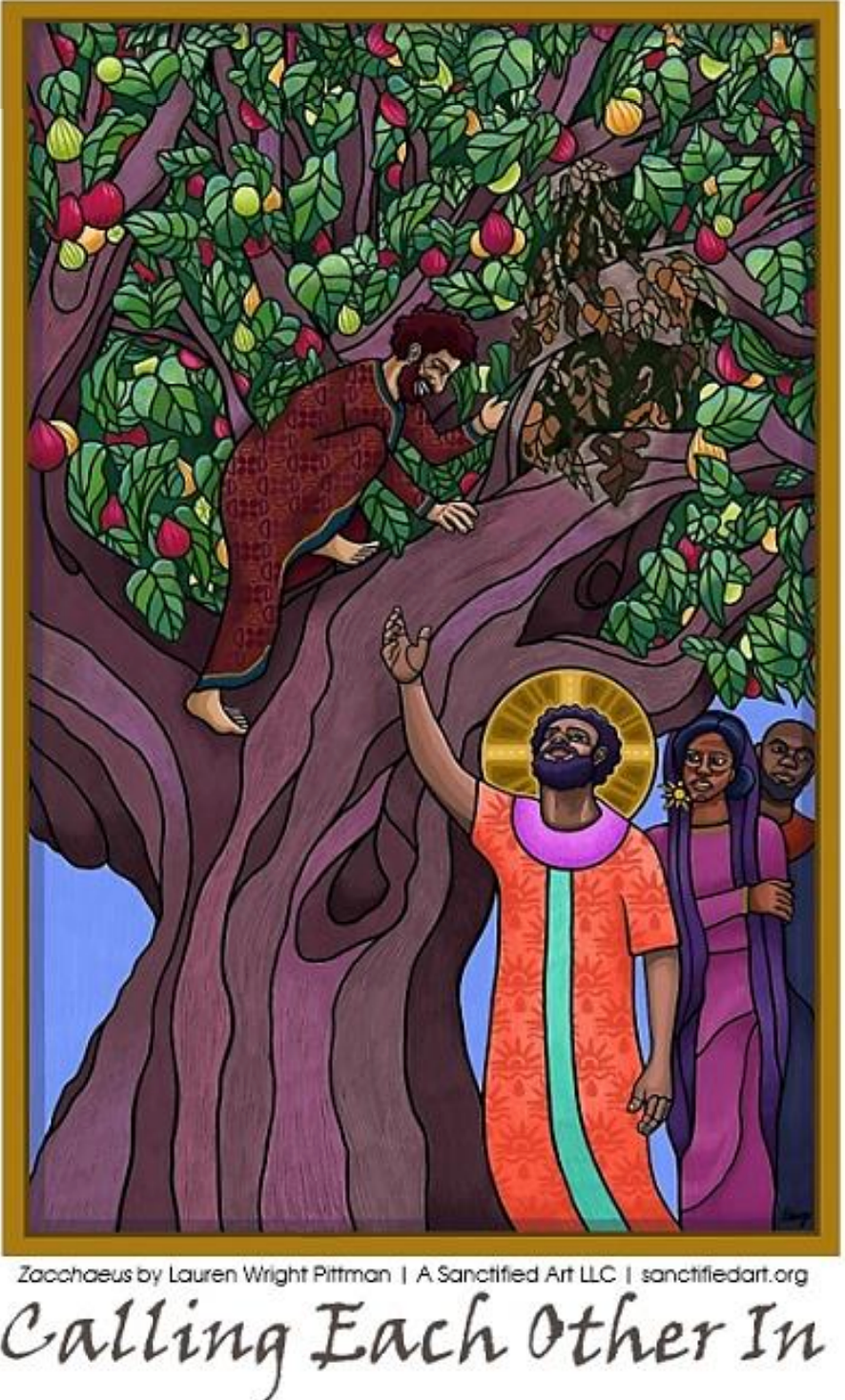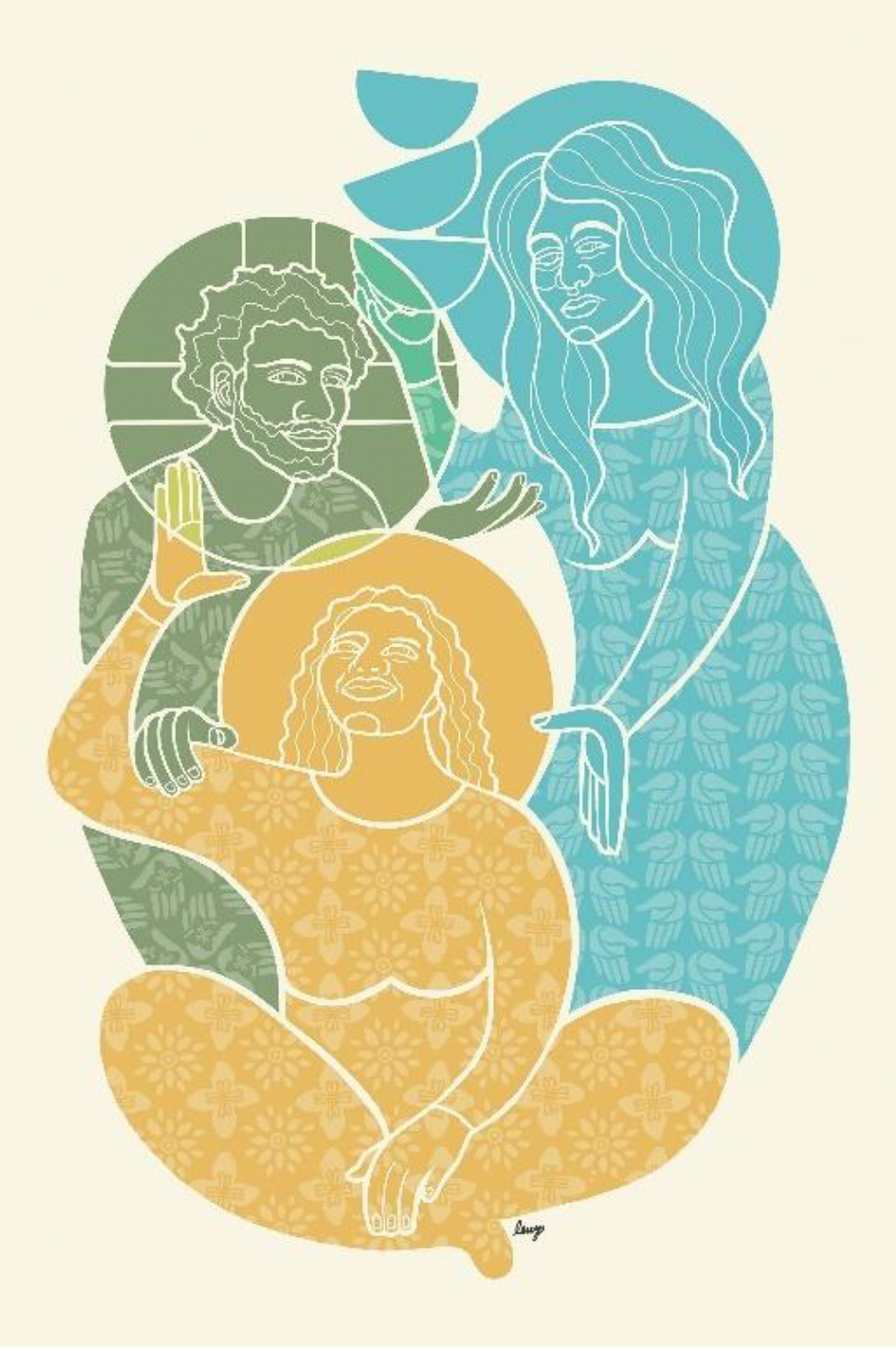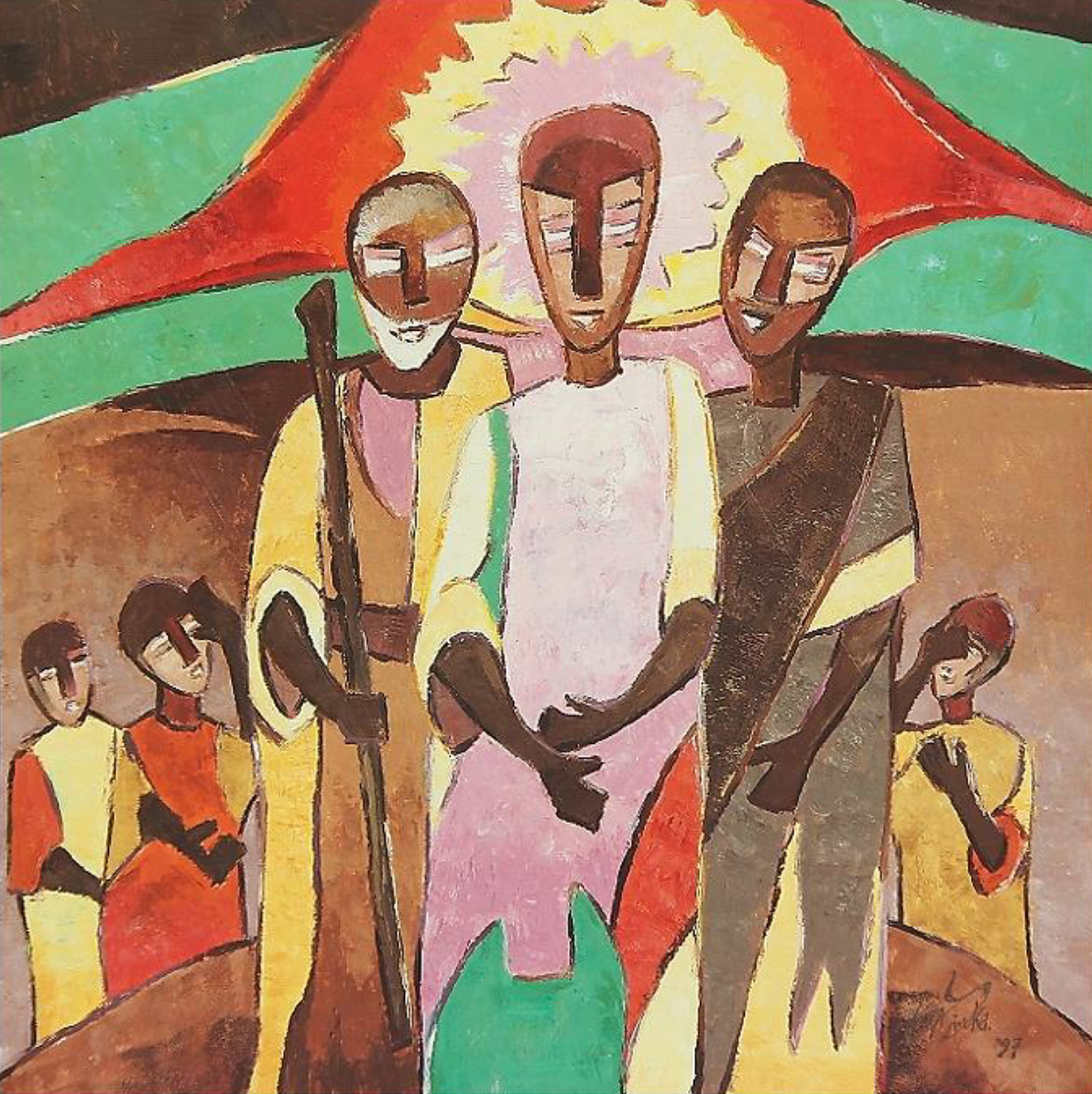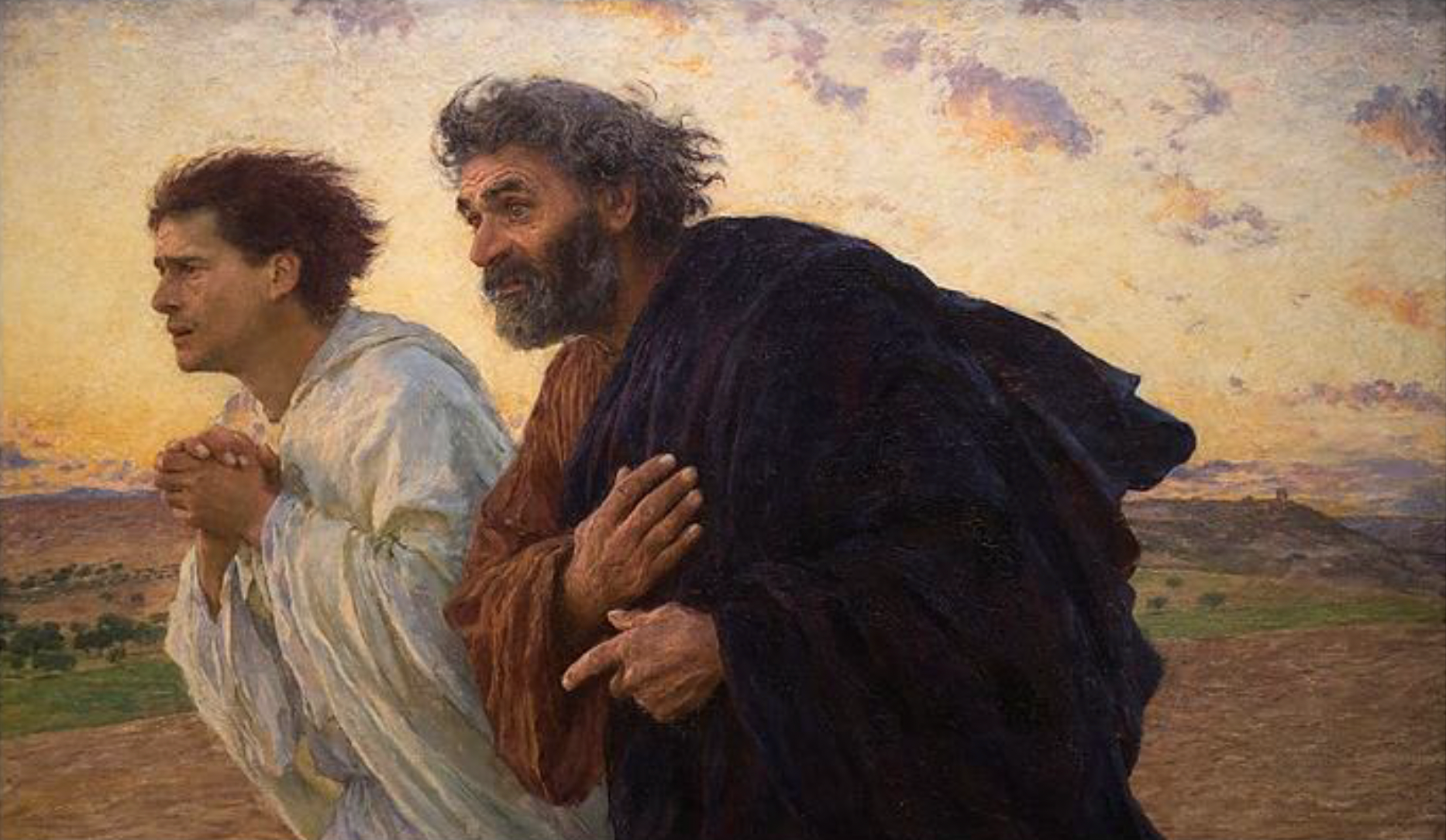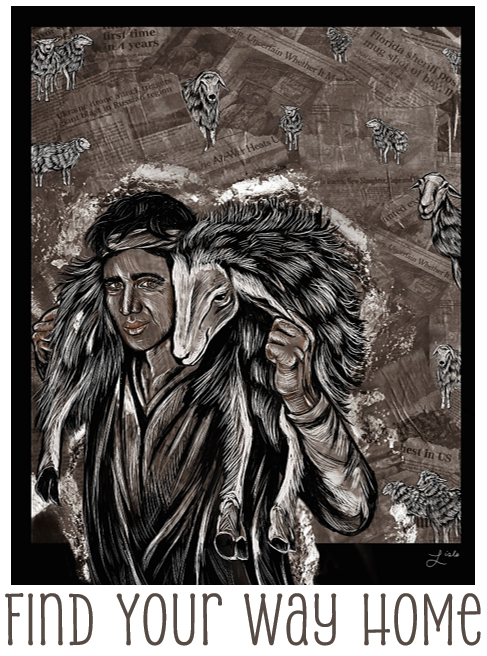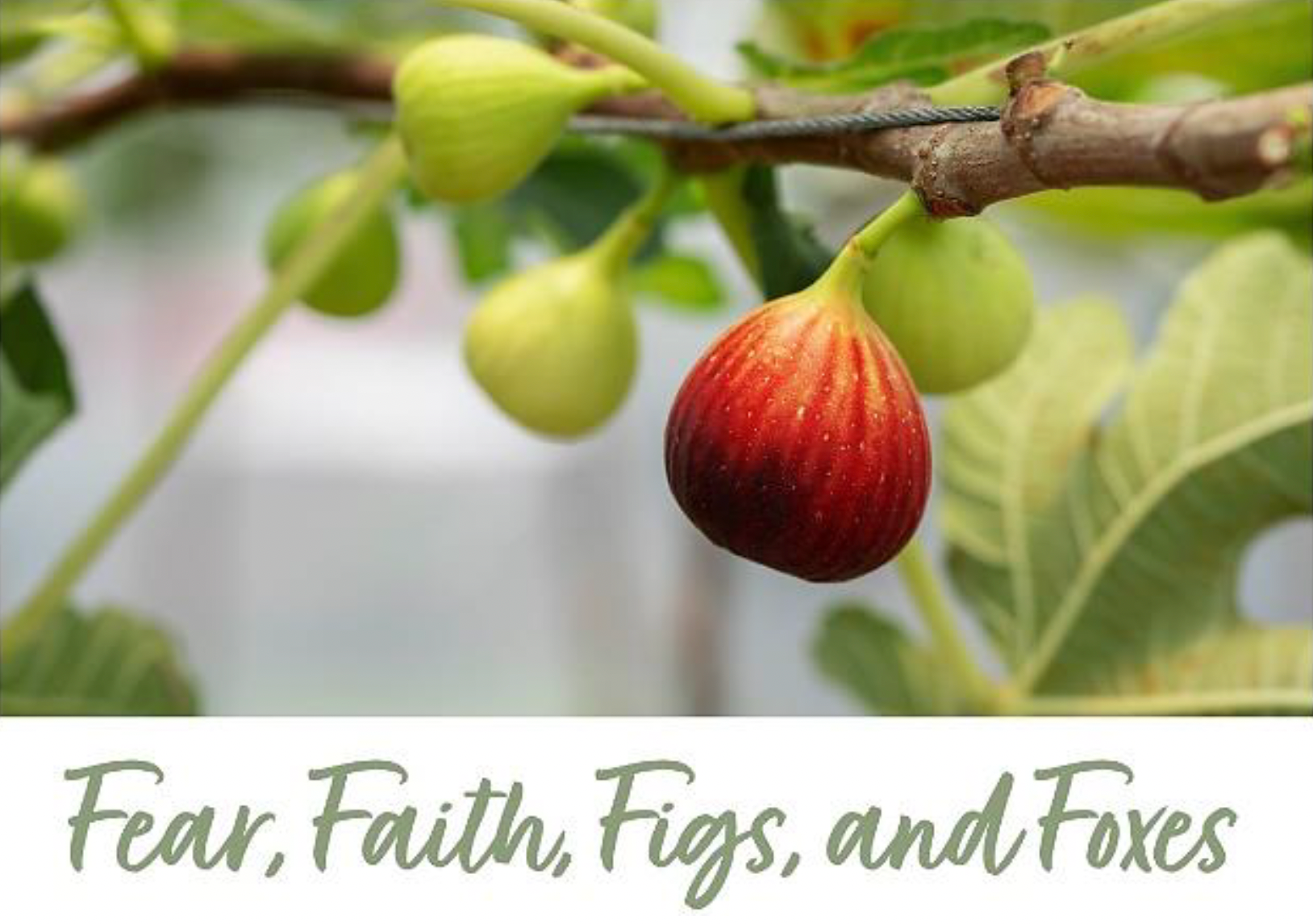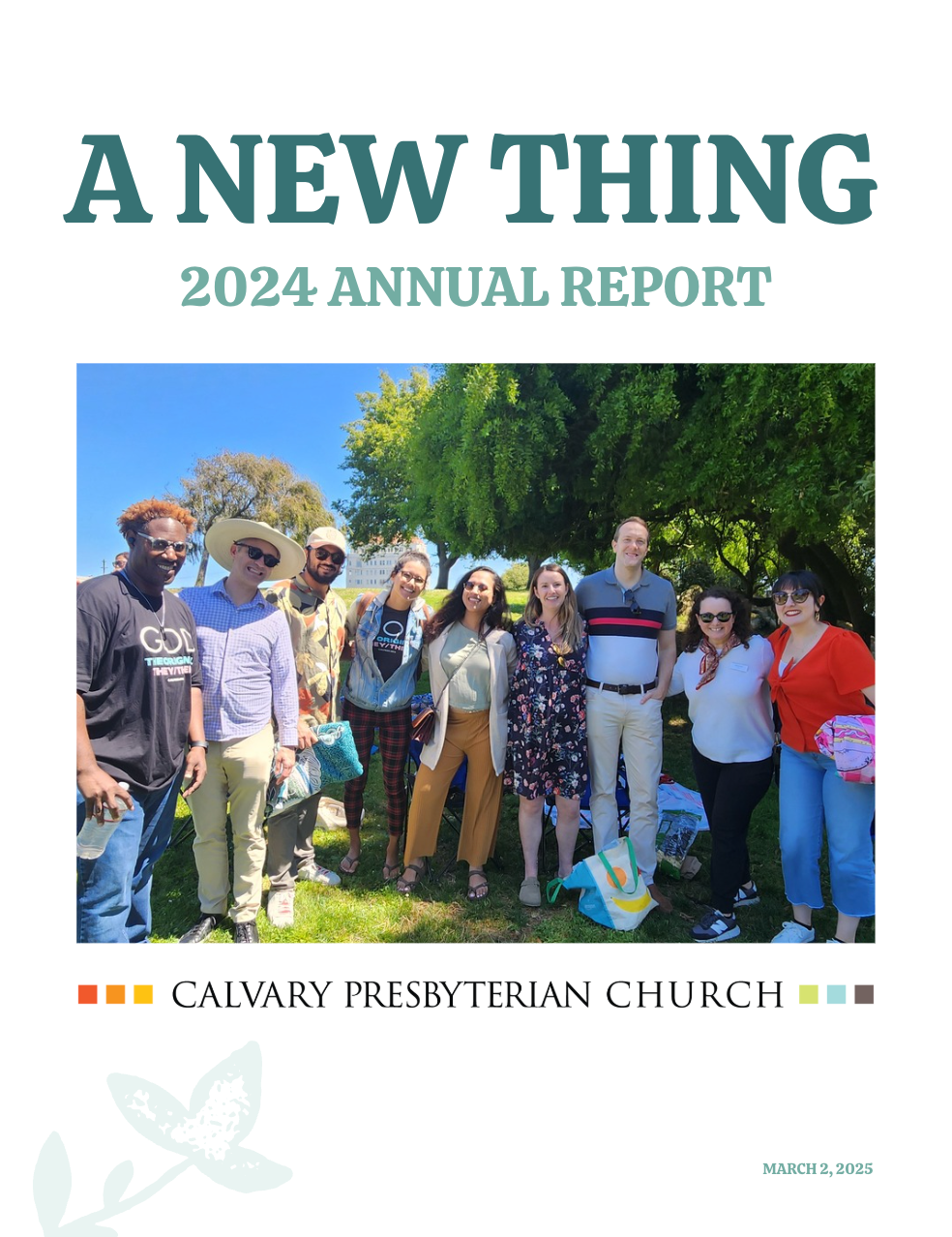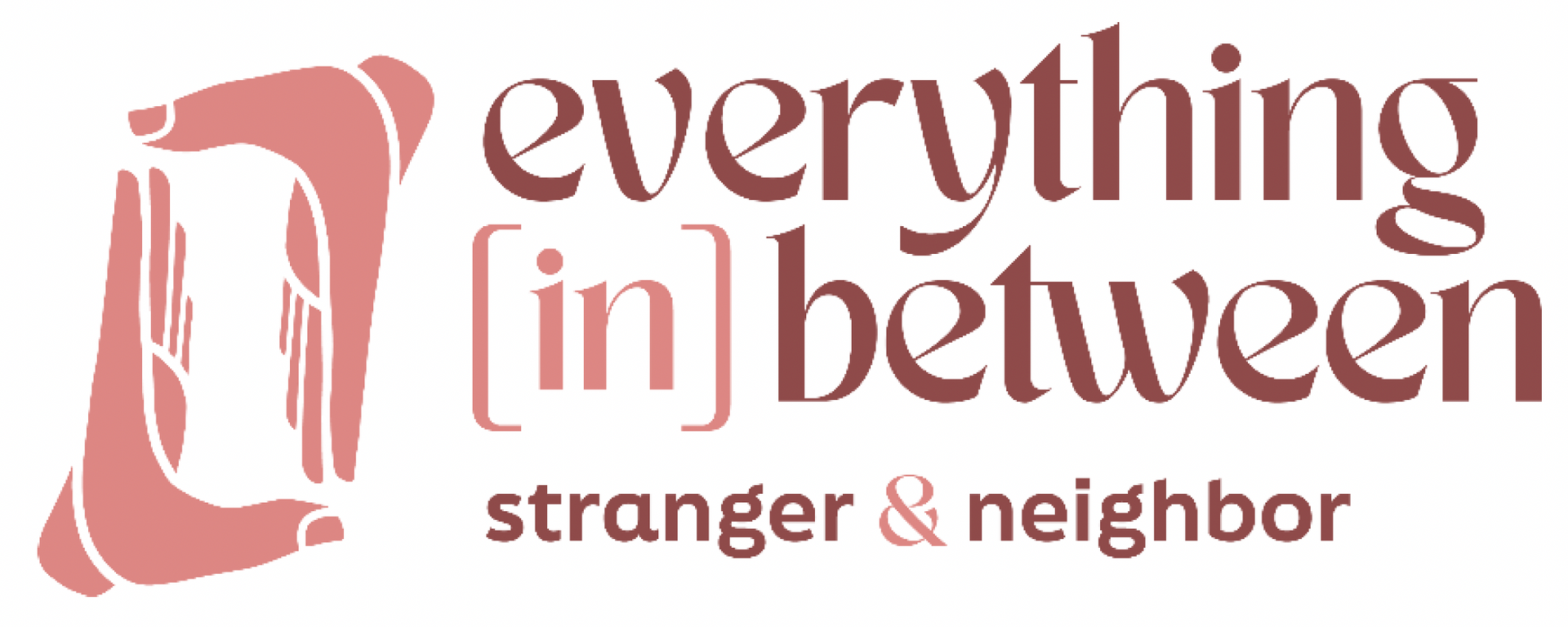Sermon 03.10.2024: Lent 4 - It was a dark and stormy night.
The storms of life don't cease. At any given moment, every human being alive is either 1) sailing into a storm, 2) navigating through a storm, or 3) coming out of a storm. Those are our only choices. Storms happen. This Sunday, we explore how to anchor ourselves to peace.
Scripture
Mark 4:35-41
Jesus at Peace
On that day, when evening had come, [Jesus] said to [the disciples], ‘Let us go across to the other side.’ And leaving the crowd behind, they took him with them in the boat, just as he was. Other boats were with him. A great gale arose, and the waves beat into the boat, so that the boat was already being swamped. But he was in the stern, asleep on the cushion; and they woke him up and said to him, ‘Teacher, do you not care that we are perishing?’ He woke up and rebuked the wind, and said to the sea, ‘Peace! Be still!’ Then the wind ceased, and there was a dead calm. He said to them, ‘Why are you afraid? Have you still no faith?’ And they were filled with great awe and said to one another, ‘Who then is this, that even the wind and the sea obey him?’
Sermon Text
Introduction: Surviving the Storm Together
A story from Walking With the Wind: A Memoir of the Movement by Civil Rights icon John Lewis.[1] This scene is rural 1940s Alabama:
[A]bout fifteen of us children were outside my aunt Seneva’s house, playing in her dirt yard. The sky began clouding over, the wind stared picking up, lightning flashed far off in the distance, and suddenly I wasn’t thinking about playing anymore; I was terrified…Aunt Seneva was the only adult around, and as the sky blackened and the wind grew stronger, she herded us all inside. Her house [not the largest around] seemed even smaller with so many children squeezed inside. Small and surprisingly quiet. All of the shouting and laughter that had been going on earlier, outside, had stopped. The wind was howling now, and the house was starting to shake. We were scared. Even Aunt Seneva was scared. And then it got worse. Now the house was beginning to sway. The wood plank flooring beneath us began to bend. And then, a corner of the room started lifting up. I couldn’t believe what I was seeing. None of us could. This storm was actually pulling the house toward the sky. With us inside it. That was when Aunt Seneva told us to clasp hands. Line up and hold hands, she said, and we did as we were told. Then she had us walk as a group toward the corner of the room that was rising. From the kitchen to the front of the house we walked, the wind screaming outside, sheets of rain beating on the tin roof. Then we walked back in the other direction, as another end of the house began to lift. And so it went, back and forth, fifteen children walking with the wind, holding that trembling house down with the weight of our small bodies.…[O]ur society is not unlike the children in that house, rocked again and again by the winds of one storm or another, the walls around us seeming at times as if they might fly apart.It seemed that way in the 1960s, at the height of the civil rights movement, when America itself felt as if it might burst at the seams— so much tension, so many storms. But the people of conscience never left the house. They never ran away. They stayed, they came together and they did the best they could, clasping hands and moving toward the corner of the house that was the weakest. And then another corner seeming at times as if they might fly apart.It seemed that way in the 1960s, at the height of the civil rights movement, when America itself felt as if it might burst at the seams— so much tension, so many storms. But the people of conscience never left the house. They never ran away. They stayed, they came together and they did the best they could, clasping hands and moving toward the corner of the house that was the weakest. And then another corner would rise, and we would go there. And eventually, inevitably, the storm would settle, and the house would still stand. But we knew another storm would come, and we would have to do it all over again. And we did. And we still do, all of us. You and I. …the endless struggle to respond with decency, dignity and a sense of [relatedness] to all the challenges that face us as a nation, as a whole. It is a path that extends beyond [race and class]. And gender. And age. And every other distinction that tends to separate us as humans beings rather than bring us together.
We are those children holding hands, walking with the wind. And we can get through any storm. Together.
Context: “On that day, when evening had come…”
Earlier on that day, Jesus taught a large crowd of people who stood on the shore and listened to his symbolic stories—parables—as he addressed them from the boat. Verse 34[2] says that Jesus did not speak to them except in metaphorical stories.[3] Yet, Jesus explained everything to his students in private. In musician parlance, Jesus had taught a public master class and, then, his private studio, all in one day. He always did it this way (Mark 4:34). That’s how this scene begins.
Is this story believable?
Now on the Sea of Galilee, evening comes, the boats encounter a storm, they take on water, and Jesus causes the storm to cease. Did this really happen? I mean, could it, really? That’s everyone’s sticking place. Did this stuff really happen? Could it happen again? After I wrestle with scripture, my answer always changes.
More Context: The Three-Tiered Kosmos
In Jesus’ culture, storms carried spiritual meanings. In ancient[4] cosmology, the cosmos was a three-tiered system. Upper tier: the sky above (where spiritual beings and deities live, whee birds travel). Middle tier: the dry land in the middle tier (where humans live), and then the lower tier: the underworld, also known as Sheol (the place of the dead, the void, the Great Nothing[5]). This underworld extends to the sea (unknown depths full of monsters, demons and the dead).
When Jesus taught them to pray “thy will be done on earth as in heaven”[6] we miss the ancient cosmological nuance. We’re praying for God to rule not only the earth but the sea and the sky also. There could not be a worse time for trouble up there amongst the heavenly beings than when humans were sailing the sea. A sudden storm down here meant something has gone way wrong up there. One theologian calls this passage “the literal boat ride from hell”.[7]
The Value of Sleep
Jesus, drained from a day of preaching and teaching, needed rest. There’s a demon who calls itself Legion waiting for Jesus at the next stop.[8] He needed rest. I once heard the Dalai Lama reveal that the secret to peace and happiness is a good night’s sleep. Now, I support the irritability of Rabbi Jesus Crankypants when the disciples rouse him whining “Teacher! Teacher! Don’t you care?” Jesus was having what we call in our home The Post-Worship Nap. He hugged that pillow—so comfortable, doesn’t need anything from me, he thought. (Today’s post-worship nap will be difficult with the time change and the Oscars beginning one hour earlier than usual.) Even though Jesus had explained everything to the disciples[9] they still needed him to help them apply his teaching.
Casting Out Demons
The power of the Greek words Mark uses for Jesus calming the storm are robbed of their power in our translation: “Peace, be still.” These are the same words Jesus uses to cast out demons! Jesus is casting out the violent forces behind the storm, the wind, the waves. More than simply “Peace, be still” the Greek words mean,“You! You be quiet now! And you, be still!” Enough of this chaos. Enough of this conflict. Enough of this violence. Mary Oliver says that then, “the sea lay down, silky and sorry.”[10]
Did this story really happen? My answer is: it happens all the time.
No Children Living in San Francisco’s Streets!
It happened on Thursday night. My thanks to Alison Faison, who organized a group of Calvary people (Alison, Lou, Jane, Sylvia,Jess, Ethan) to listen the stories of refugee families who come to our sanctuary city. We heard from family after family, they had fled violence and the storms of other nations, to seek asylum—sanctuary in the United States, the promise of international law. San Francisco has been a sanctuary city since 1989. Today “sanctuary” does not mean what I assumed it mean. Sanctuary means that we welcome asylum-seeking families to enter the system of support offered by the city’s Department of Homelessness.[11] In order to qualify for help, families must live on the streets for at least two weeks. How many people here have children? Imagine two weeks sleeping under gas station awnings, in doorways, in parks with no money, no food, no help. After two weeks of nothingness[12], they can go on a waiting list for congregate shelter. The city will not share with them where are on the waiting list.
Thursday night, I made a promise that, as a Christian, I will demand the waiting list be made public through an online dashboard that anybody can access. I will also raise my voice of privilege, demanding families be given shelter so that children are not living in the streets of San Francisco. I also learned that there are 84 billionaires in our city.[13] I urge you to write letters, make calls to newspapers, city agencies, whoever you can think of. Because Jesus has explained and showed us how, we can cast out the demonic forces of apathy and injustice at work in our neighborhoods. Nobody’s children should live on our streets.
Celebration: Drop Anchor in the Gospel of Jesus Christ
The storms don’t cease. If you’re not in one right now, you will be. Perhaps you’re coming out of a storm. Praise God. What storm are you braving today? You are not alone. It will pass.
Sung[14] — “My Soul Has Been Anchored in the Lord” by Douglas Miller
Though the storms keep on raging in my life
And sometimes it’s hard to tell the night from day
Still that hope that lies within is reassured
As I keep my eyes upon the distant shore
I know He’ll lead me safely to
That blessed place He has prepared
But if the storms don’t cease
And if the winds keep on blowing in my life
My soul has been anchored in the Lord
I realize that sometimes in this life
We're gonna be tossed
By the waves and the currents
That seem so fierce
But in the Word of God I’ve got an anchor
And it keeps me steadfast and unmovable
Despite the tide. But if the storms don’t cease…
Charge
Remembering the details and symbols from today’s gospel, I charge you, in the words of Maya Angelou[15] to press on, to continue…
Continue
To let gratitude be the pillow
Upon which you kneel to
Say your nightly prayer
And let faith be the bridge
You build to overcome evil
And welcome good
Continue
To ignore no vision
Which comes to enlarge your range
And increase your spirit
Continue
To dare to love deeply
And risk everything
For the good thing
Continue
To float
Happily in the sea of infinite substance
Which set aside riches for you
Before you had a name
[Amen.]
1 John Lewis, Walking With the Wind: a Memoir of the Movement. New York: Simon & Schuster, 1998), introductory pages.
2 Mark 4:33-34 “With many such parables he spoke the word to them, as they were able to hear it; he did not speak to them except in parables, but he explained everything in private to his disciples.”
3 Parables are comprised of metaphors and similes, not unlike other ancient spiritual teachings.
4 Bible Project, Creation through the Lens of Ancient Cosmology https://bibleproject.com/articles/creation-through-the-lens-of-ancient-cosmology
5 In current cosmology, there is The Boötes Void, a giant region of space where the planets and stars are missing. The “Great Nothing” is the mysterious darkness that eats the world in Michael Ende’s 1979 fantasy novel The Never Ending Story, also a beautiful 1984 movie.
6 See Matthew 6 and Luke 11. The Lord’s Prayer does not occur in Mark
7 David Schnasa Jacobson, Commentary on Mark 4:35-41, accessed online at www.workingpreacher.org/commentaries/revised-common-lectionary/ordinary-12-2/commentary-on-mark-435-41-5
8 See Mark 5:1-20, which was the topic of the last sermon I preached at Calvary, January 28, 2024.
9 Mark 4:33-34.
10 “Maybe” by Mary Oliver offers a beautiful interpretation of today’s scripture. See https://voetica.com/poem/173
11 For more details, please visit https://faithinactionba.org/sanctuary/ (March 11, 2024)
12 Sheol? Hell?
13 A number that has doubled over the past five years.
14 See https://www.facebook.com/victor.floyd.3/videos/10159223490107952 for a better rendition (also by me—ha!).
15 The entire poem is accessible at https://www.mayaangelou.com/2023/11/08/celebrate-dr-angelou-essay-contest-winnersmaya-
angelou-artist-in-residence-with-debbie-allen-at-wake-forest-university/ (March 11, 2024)
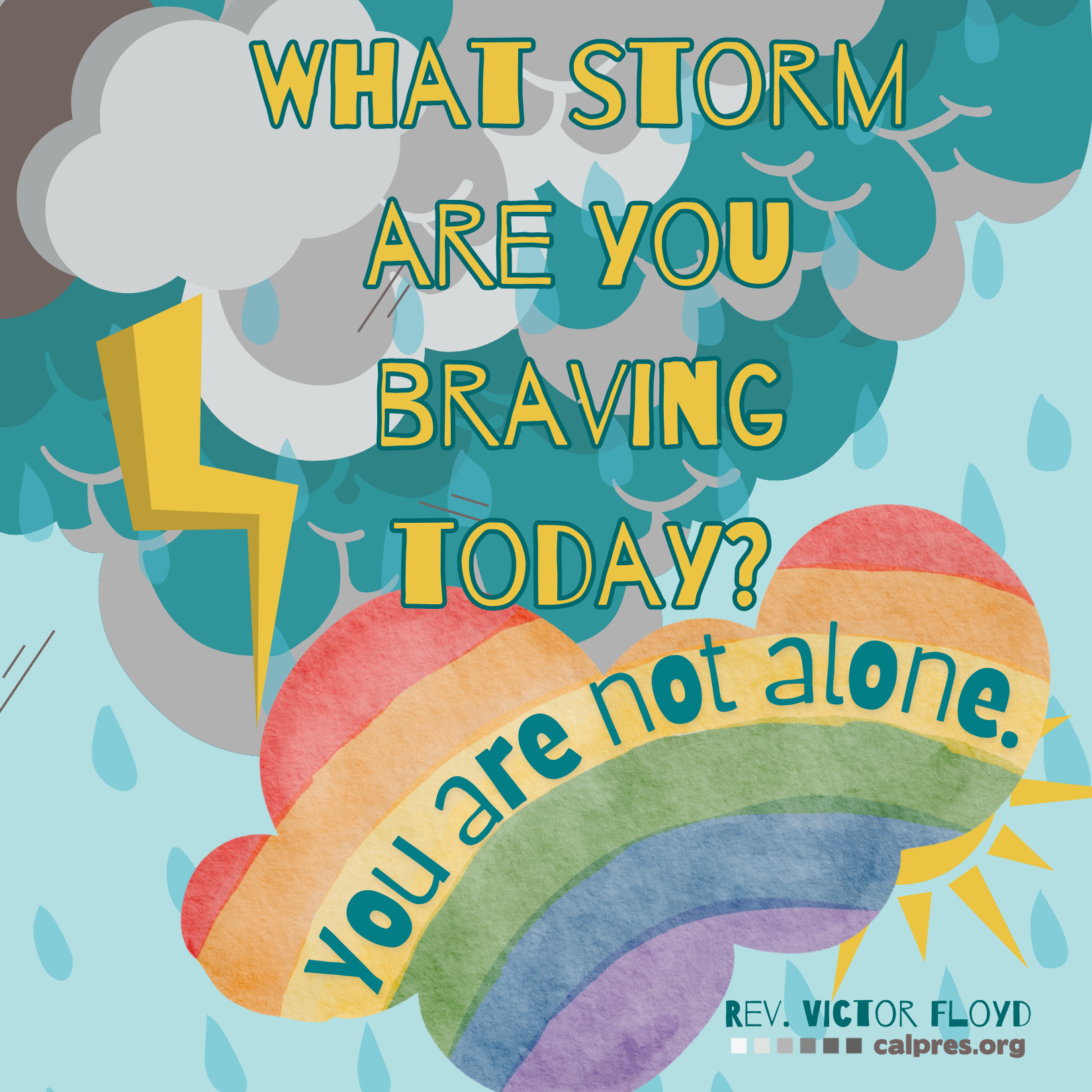
Art by Rachel Wolf

